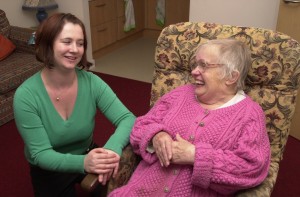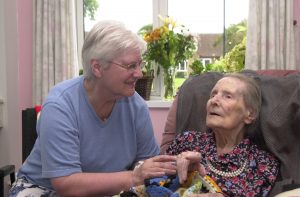 Last January, as we entered the 2020s I wrote how Christians could make the decade ‘the new Roaring 20s’ by raising a collective voice against the things that damage our society, particularly ageism (read more here: https://www.who.int/bulletin/volumes/96/4/17-202424/en/) Then came the Covid crisis, and overnight our tectonic plates shifted. Isolated from each other, we found out the hard way what really matters in life.
Last January, as we entered the 2020s I wrote how Christians could make the decade ‘the new Roaring 20s’ by raising a collective voice against the things that damage our society, particularly ageism (read more here: https://www.who.int/bulletin/volumes/96/4/17-202424/en/) Then came the Covid crisis, and overnight our tectonic plates shifted. Isolated from each other, we found out the hard way what really matters in life.
The value of life at all ages. There was a robust response from panellists on BBC’s Question Time when a telephone caller asked if the trade-off for trying to save the lives of the elderly was “really worth it, when it will cripple the younger generations’ lives for decades”. ‘There was no ‘trade-off’ to consider,’ he was firmly told, and “Our absolute responsibility is the protection of life”, and ‘the right to life is the most important human right.’ We saw this kind of rebuttal over and over again. There is still, as Guardian columnist John Harris noted, ‘a set of prejudices about older people that have sat in the culture for far too long.’
It’s the carers and other unsung workers who really matter. When the chips were down, we realised the the important people in our lives are those we depend on to make it worthwhile. As well as NHS front-line staff, we’ve been clapping the bin-men, the cleaners, the postmen and the delivery men, the other clearer-uppers, and the newly crowned carers – those who care for a family member and those who work in care homes. There are calls for them to be recognised and valued as the skilled people they are, and for immigration rules to be altered to allow more to enter the country.

The vital role of care homes. A lady I met at a conference told me how she’d visited one of our Pilgrims’ homes some 15 years ago. ‘I never forgot it,’ she said, ‘there was such a loving, caring atmosphere.’ It could be said, to varying levels, of thousands of others in the UK, but you never hear this in the media. The view of care homes is skewed in the public perception. ‘Too few of us thought about the vital work so many dedicated people are doing in them,’ wrote John Harris, ‘and people in power seem content for such places to remain a byword for low-paid work..’ There’s a long way to go in correcting public perception but the crisis has not only shown the vital work care homes are doing, but how they are still seen as ‘secondary’ to the NHS. Many influencers, including MPs, are trying to change that.
The value of volunteering. When a call went out for volunteers to help in the NHS and social services, 750,000 people volunteered in less than a week. That’s just one example. People of all ages are volunteering to help in hundreds of ways in their communities. They are finding huge satisfaction and value in helping others.
The value of community. Realisation has dawned that globalisation is good for business but not for people. (Ironically, China, where the corona-virus originated, is also the manufacturing base for global corporations. Most of the world’s PPE is made in China, and this has led to supply shortages.) The crisis has seen countless acts of kindness strengthening communities of all kinds. Neighbours are speaking to neighbours they hardly knew before, and local restaurants have turned, temporarily, into take-aways. Churches have become community food-centres, with donations from every major supermarket.
When reality bites, the superficial is abandoned. ‘After this is over,’ said a post on Facebook’, ‘I don’t want to hear about celebrities. I want the red carpet rolled out for doctors, nurses, carers, council workers, and all the real people.’ Amen to that.
More reading: (https://www.theguardian.com/commentisfree/2020/apr/26/prejudice-older-people-coronavirus)
















I totally agree with this really great article! Thank-you Louise. 🙂 For far too long we have embraced the, ‘Corporate-Commercial-Celebrity, ‘Greed is Good!’ Social Model….. :/ For me, all of that ended many years ago. Now, despite all of the Covid-19 / Trump etc, turmoil and upset in the World, (and as a Carer / looking out for others myself person), I can somehow see, ‘A Light at the End of the Tunnel!’ 🙂